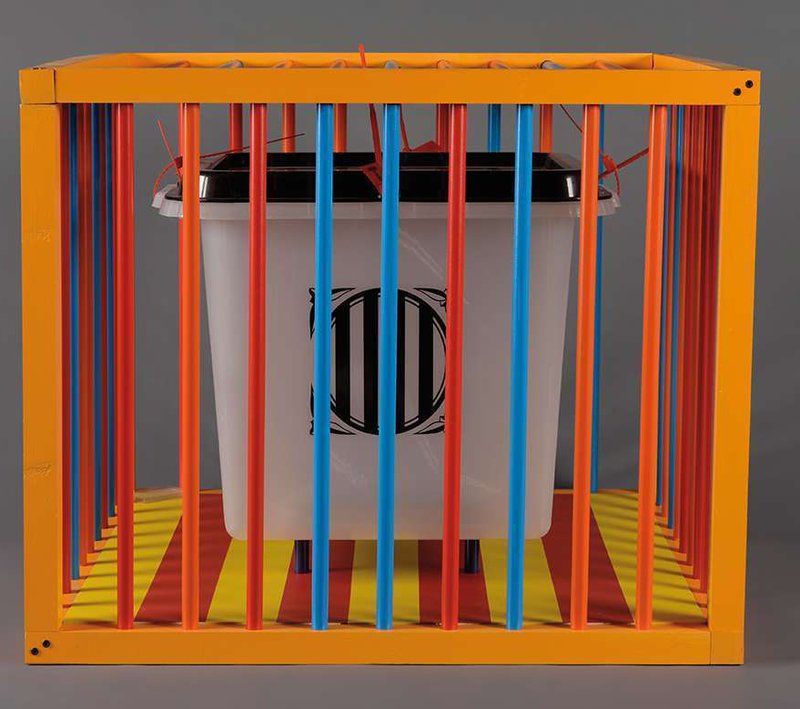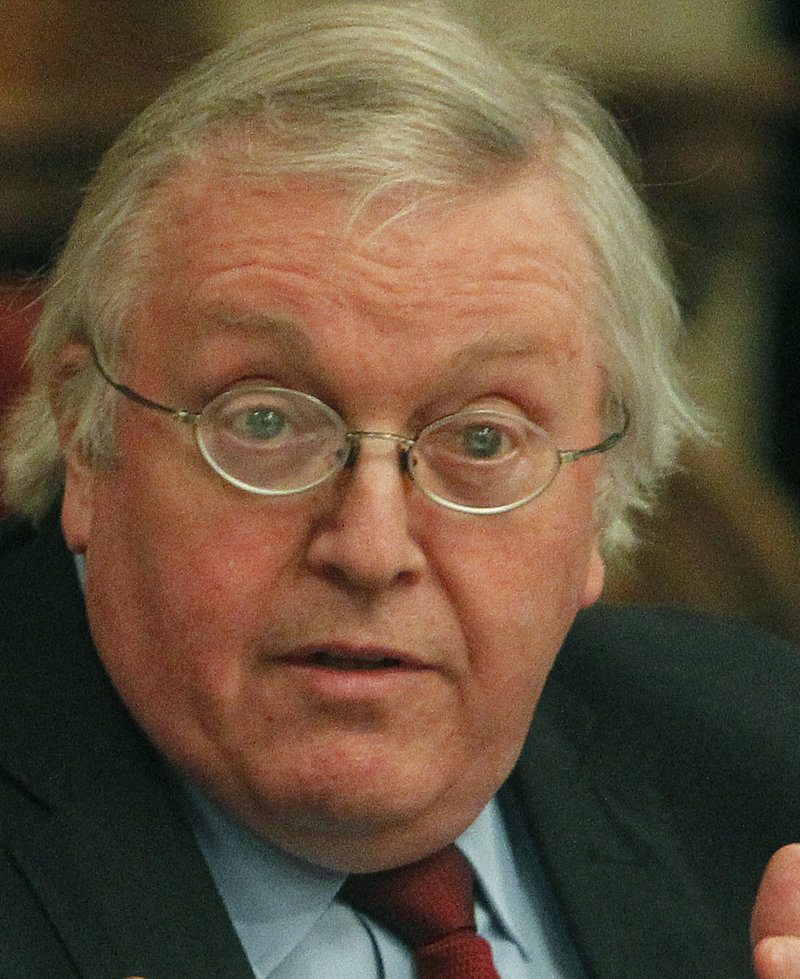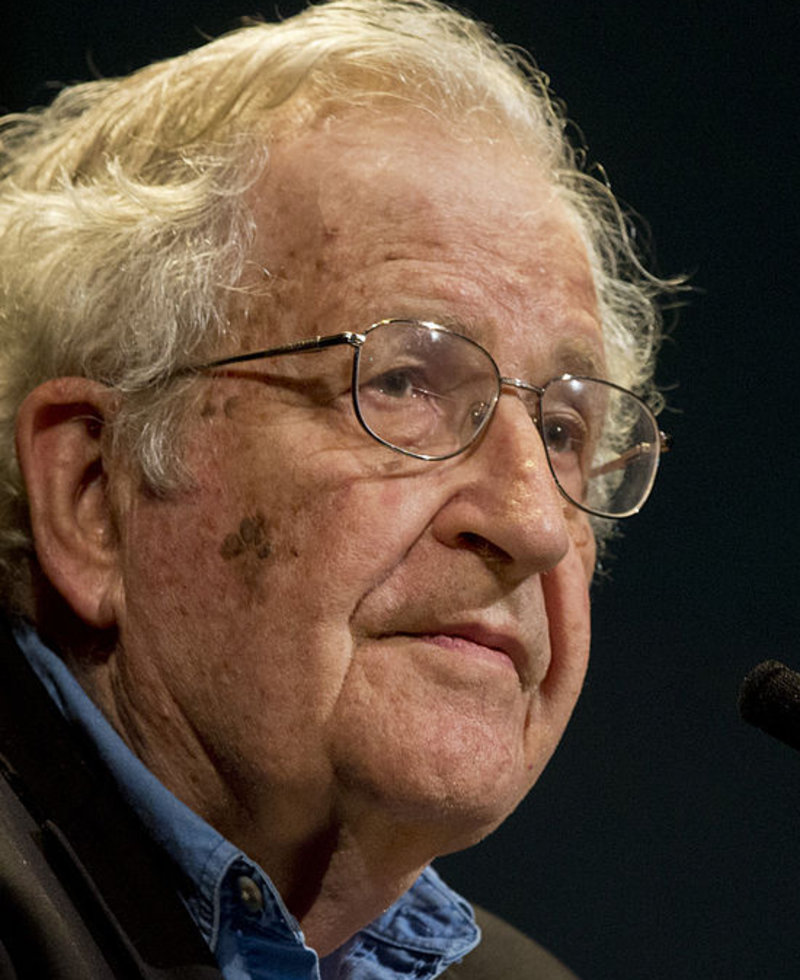The arguments of the defence
nIt is a political trial
On trial are members of Carles Puigdemont’s government, the former president of the ANC Jordi Sànchez, the president of Òmnium Cultural Jordi Cuixart, and the former parliament speaker Carme Forcadell. The defence says they are being tried for their ideas, and that it amounts to a trial against democracy itself and fundamental rights. That would make it a political trial. The criminal code has been used to pursue a political movement. It is above all Cuixart’s defence that has put forward these arguments with the most force and his defence is as much an accusation against the State.
nWithout violence there can be no rebellion or sedition
The actions of the defendants do not fulfil the requirements for the charges as described in the criminal code. All of the events over which they are charged, including the demonstrations of September 20 and the October 1 referendum, took place without any violence or armed rebellion. They were non-violent acts of protest and civil disobedience.
nSeptember 20 protests were peaceful
The prosecution describes the demonstration outside the economy department – in protest at the arrest of high ranking government officials and a police raid ordered by a court in Barcelona – as “riotous”, a necessary condition for it to count as a seditious offence and justify the charge of rebellion. It is also argued that its instigators were aware that these gatherings could later lead to the violence necessary to carry out the banned referendum. The defence argues that the accusations distort the reality of the situation and they have even presented evidence they say was manipulated, such as videos by the Guardia Civil about September 20 that try to make it seem as if violence had taken place. The demonstration outside the economy department did not at any time prevent the police from carrying out the raids, nor prevent court officials from leaving the building. The prosecution attributes these “riotous” protests to Jordi Sànchez and Jordi Cuixart. However, the call to assemble outside the building also came from other groups, including the two main unions. It is true that the two Jordis directed the crowd, which they encouraged at all times to remain peaceful, and later stood on top of a Guardia Civil police car parked outside to tell the people assembled to leave. The defence points out that the vehicle, which was open, contained weapons that were at no time touched by anyone involved.
nThe police committed the violence on October 1
Despite the fact that the images of Spanish police charging people blocking the entrances to polling places were shown all over the world, and were condemned by numerous organisations and the international media, the prosecution says the police acted proportionally given the large numbers of people. As well as providing evidence supporting the claims that almost a thousand people were injured by the police and showing indiscriminate and unnecessary use of force by officers, the defence insists that what took place that day was non-violent civil disobedience. They also point out that the same Supreme Court, in a 2009 ruling, said that “civil disobedience can be conceived of as a legitimate method of dissidence against the State, and that this way of thinking and ideology must be deemed acceptable by a democratic society.”
nCalling a referendum is not a crime
The offence of calling an unauthorised referendum was decriminalised in 2005, as a result of an amendment to an arbitration law put forward by the PP party two years earlier that had nothing to do with the criminal code. Given that calling an unauthorised, as opposed to criminal, referendum is not considered a crime, the defence questions that peacefully resisting the use of force by the authorities so as to allow the vote to go ahead can form the basis of a prosecution. The prosecutor cites the resistance to the police at polling places, the September 20 protests and the strikes on October 3 and 8 as part of a “general uprising marked by acts of force, aggression and violence, which spread with the aim of achieving the secession of this autonomous territory” and adds that it even obliged the king to intervene and demand that the public authorities guarantee constitutional order.
nThere was no misuse of public funds
The defence roundly rejects the accusation that public funds were used to pay for the referendum, and argues that if at any point such financing was considered it was rejected and so there is no charge to answer. The defence also points out that at that time, the Spanish finance minister, Cristóbal Montoro, and the then prime minister, Mariano Rajoy, both confirmed in parliament that no public money had been used to pay for the referendum.
nThe independence declaration is not legally binding
On October 10, 2017, the then president, Carles Puigdemont, announced in parliament that the result of the October 1 referendum would be made effective, but immediately afterwards suspended it in order to provide an opportunity for the negotiated solution to the political conflict that the international community was calling for. On October 27, while the process to trigger article 155 of the Constitution so as to suspend Catalonia’s autonomy was in the Senate, independence was formally declared in parliament. Yet, the defence argues that the declaration had no legal effects because it was not implemented or published in the parliamentary gazette. It was, they argue, a political act and not a legal one and, therefore, cannot be considered a criminal act. The declaration of independence, despite being approved in a plenary session, was not signed by the pro-independence party members as MPs, but as elected representatives, and they did so not in the plenary chamber, but in an adjacent room, a decision that was not accidental.
nThe Schleswig-Holstein effect
What might be the effect of the ruling by the court in Schleswig-Holstein? On July 12, 2018, this German court ruled out that what Carles Puigdemont was accused of could be considered rebellion and therefore refused to extradite him for this offence. In fact, the German court concluded that his conduct was covered by political rights in a democratic society. The Supreme Court does not have to take this ruling into consideration, and it is not mentioned by the prosecution. However, Jordi Cuixart’s defence has cited it and called on the Supreme Court to refer to the European Court of Human Rights in Luxembourg. His defence asks that the European court rule on whether it is possible to press charges of rebellion for actions that another European Union state does not consider to be criminal. It will now depend on the Supreme Court whether it refers the issue to the court in Luxembourg or not, and while it is not obliged to do so, even if does that will not be enough for the trial to be suspended.
The witnesses
Nobel prizewinners, Noam Chomsky, Paul Preston, Puigdemont, Urkullu, Rajoy… The list of witnesses put forward by the defence is long and shows that the trial is more than a criminal prosecution but includes political motivations and human rights issues.
On the one hand, the defence demands that the political figures who were involved in the independence bid testify, such as former prime minister Mariano Rajoy, Basque president Iñigo Urkullu, former Catalan president Artur Mas, Ombudsman Rafael Ribó, MP and activist Lluís Llach, and so on. They have also made the controversial demand to allow former president Puigdemont and former ERC secretary general Marta Rovira to give evidence from exile by videoconference. Yet, everything suggests that this request will be turned down, as will the demand that King Felipe VI appear in court, as his status as the monarch exempts him. Nevertheless, there is a small chance that a representative of the royal household could testify in the king’s place.
Jordi Cuixart’s defence, in an attempt to show that the head of Òmnium Cultural is being tried for his ideas, have called to the stand two Nobel prizewinners. One is Jody Williams, who won the Peace Prize in 1997 and signed the Let Catalans Vote manifesto promoted by Òmnium, as well as organising a letter signed by 24 Nobel prizewinners condemning the police brutality on October 1. The other is the 2015 Peace Prize winner, Ahmed Galai. Also on the list of potential witnesses are linguist Noam Chomsky, historian Paul Preston, lawyer and founder of Art for Amnesty Bill Shipsey, the author of the report on October 1 for Humans Rights Watch Kartik Raj, and a variety of UN experts.





